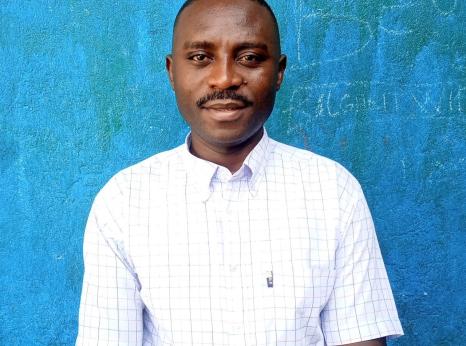Democratic Republic of Congo: Human Rights Activists Must Be Released

King Mwamisyo, 28, is a law student and a LUCHA activist from the city of Goma, Nord-Kivu province, in eastern DRC. He was presented to a judge for the first time on 16 September 2022, more than five months after he was arrested.
Elias Bizimungu, 33, is a journalist and an activist with the citizens’ movement LUCHA, from the town of Kiwanja, about 75km north of Nord-Kivu’s capital, Goma. The military officer who arrested Elias said his actions had disrupted public order and caused economic losses for the people and the state. Both activists are being held in Goma prison after having their applications for provisional release dismissed.
The conditions of detention in Goma prison are abominable. The prison, built to accommodate 300 people, has currently nearly 4,000 inmates confined in cramped and filthy spaces, without running water, electricity, beds, medical care, or adequate food. Anyone willing to see the inmates must pay up to $USD 2 in bribes to the four security checkpoints in the prison.
Prosecutions for “insulting” the army, the President or other state institutions are a violation of the right to freedom of expression and therefore incompatible with DRC’s obligations under Article 19 of the International Covenant on Civil and Political Rights (ICCPR). The UN Human Rights Committee, which monitors implementation of the Covenant, has emphasized the particular obligation that States have to allow criticism of institutions such as the army or the administration. The prosecution of civilians before a military tribunal is also a violation of the right to a fair trial. Guidance on fair trials from the African Commission on Human and Peoples’ Rights states that “[t]he purpose of Military Courts shall be to determine offenses of a purely military nature committed by military personnel". King Mwamisyo’s prosecution before a military court is therefore in violation of DRC’s obligations under regional and international human rights law.
The resurgence of the rebel group, March 23 Movement (M23), in Nord-Kivu province aggravated the security and humanitarian crisis in eastern DRC, while reigniting military and political tensions between the DRC and Rwanda. Tensions between the two countries sparked a new wave of anti-Rwanda and anti-UN protests.
In 2022, the DRC authorities intensified their crackdown on the rights to freedom of expression, association and peaceful assembly. They continued to use the Covid-19 pandemic and the extended “state of siege” (a form of martial law which was declared in May 2021 and has since been extended over 40 times) in Ituri and Nord-Kivu as pretexts to ban or suppress public meetings and demonstrations by individuals and groups considered to be critical of the government. Military authorities, appointed under the “state of siege”, continued to arbitrarily arrest and detain critics and to ban and suppress demonstrations with impunity. Demonstrations considered favourable to the authorities were allowed to go ahead while those deemed critical were banned or violently suppressed. Civil society organizations and opposition activists were arbitrarily detained, often without trial, for criticizing the “state of siege” or the government, or otherwise exercising their human rights. In April 2022, a military court in Beni city sentenced 12 activists from the civil society movement, Lutte pour le Changement, to 24 months in prison for “inciting the public to disobey the laws”. The activists were arrested in November 2021 for staging a peaceful sit-in at the city hall to protest against the extension of the “state of siege” without a proper assessment of its impact on the security situation. They were eventually released in August 2022 after the Court of Appeal of Nord-Kivu quashed the military court’s decision. More information about the “state of siege” can be found in Amnesty International’s 2022 briefing, ‘DRC: One year on, ‘State of Siege’ used as a tool to crush dissent’.